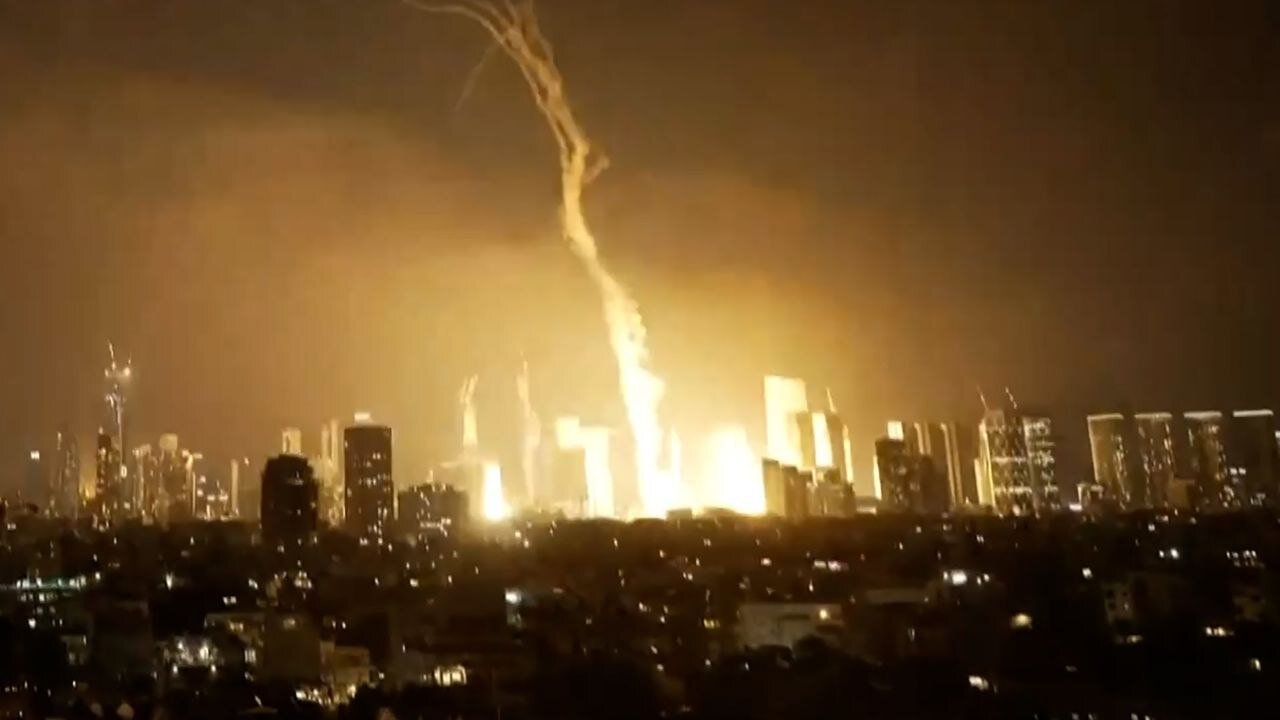As long as it takes
Iran begins retaliatory strikes against Israel after regime kills civilians, officials, and scientists in direct aggression

TEHRAN – Less than two weeks before her 24th birthday, Parniya Abbasi was spending Thursday night with her family in their apartment complex, making the most of her weekend before returning to her cherished job at Iran's central bank—a position she valued so much, she'd postponed her master's degree in English, her close friend, Maryam, told Iranian media.
Parniya was supposed to meet Maryam for brunch the next day: a new cafe in Tehran everyone was talking about, then a drive to one of those viewpoints overlooking the city. But when dawn broke over western Tehran, Maryam arrived at Parniya's apartment to a sight which resembled a scene ripped straight from a disaster film. The building wasn't there. Just a mountain of broken concrete and twisted metal.
Buried within that wreckage, Parniya was still in her bed, with two large pieces of concrete lying on top of her. Maryam recognized Parniya’s pink bed sheets, now stained with blood, and a strand of her dark hair poking out of the debris.
Parniya was among the dozens of civilians who were brutally murdered during Israeli airstrikes on residential buildings in Tehran. The strikes, occurring in the early hours of Friday, were so strong they rattled windows kilometers away. The aim was to assassinate several top Iranian military officials, a goal Israel accomplished.
Israel’s Tehran massacre was followed by attacks on Iranian military radars and nuclear sites. Iran’s biggest nuclear facility, named Natanz and located in the central Esfahan province, was one of the targets. While Israel fell short of taking out the hardened underground nuclear site, it still managed to damage parts of it placed above the ground.
The assaults sent shockwaves through Iran, from its citizens to its leadership. Tehran had been preparing to attend the 6th round of indirect nuclear talks in Oman. The U.S., the other party in the negotiations, had publicly expressed optimism and claimed to have urged Israel to avoid any action against Iran, at least until the outcome of the talks was clear. But those pronouncements now ring hollow to Iranians. Mounting evidence suggests the U.S. was fully aware of Israel's planned assault, and even assisted in its execution by providing intelligence and advanced weaponry.
It took Iran less time than Israel had hoped for to get back to its feet and begin retaliation. Leader of the Islamic Revolution, Ayatollah Seyyed Ali Khamenei, swiftly appointed new military leaders to replace the assassinated ones, and promised that he would make Israel “helpless” and “miserable”. The newly appointed IRGC Chief, Major General Mohammad Pakpour, replacing Major General Hossein Salami, promised to unleash the gates of hell on Israel.
A portion of that hellfire erupted between Friday night and Saturday morning. Iran retaliated, unleashing five ballistic missiles at the occupied territories, leaving swaths of destruction across Israeli cities. At least 150 military and intelligence targets were hit, with preliminary analysis suggesting a success rate exceeding 90%.
Compared to the preceding Friday, Saturday was relatively quiet for Iranians. While large explosions from fighter jets were not reported, Mossad operatives continued to deploy micro aerial vehicles (MAVs), striking targets in West Azerbaijan province, Tehran, Shiraz, Kermanshah, and Hormozgan. Thanks to citizen assistance, Iranian intelligence forces apprehended sixteen of these agents. Intelligence officials anticipate a decrease in MAV attacks in the coming days as more of these spy cells are neutralized.
One thing is certain: this is only the opening act. The Tehran Times has learned that the Iranian military is bracing itself for more devastating strikes against Israel. And the mood on the ground in Tehran is more rage than fear. When I visited a park in central Tehran on the first night of the war, I heard a prevailing sentiment: Iran needs to see this through. "If we back down now, it's over," a man in his sixties, out with his daughter, told me. "We can't give up. Giving up will only make things worse. We have to keep going until things get better. We have done that for thousands of years, and that’s how we have managed to survive for so long.”
Leave a Comment